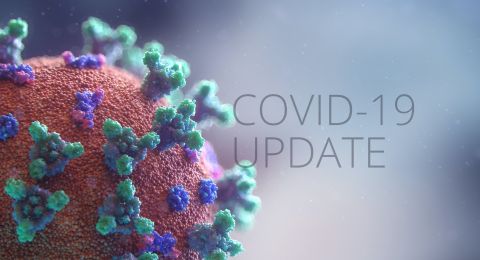Covid-19 Specimen Examination Continues to Experience Improvement
By: Alfisyah Kumalasari ) *
The government continues its efforts to deal with the Covid-19 pandemic. Recently the handling seems to have begun to show progress. Examinations targeted at 10 thousand specimens of the corona virus per day announced by President Joko Widodo have been exceeded for 5 consecutive days.
Based on data notified by a government spokesman regarding the handling of Covid-19, Achmad Yurianto at the end of May, a total of 323,376 specimens have been examined. Thus, there were an additional 11,470 specimen examinations the day before.
Specimen examination is performed using real time PCR and rapid molecular tests (TCM) to detect viruses. The government spokesman said that the examination of 11,470 specimens obtained 700 positive cases of Covid-19. Then the new positive case data was accumulated and recorded 26,473 positive cases of Covid-19 in Indonesia on June 1, 2020.
In addition, there were a total of 1,613 death cases and 293 patients recovered to 7,308. Most of the patients who recover have ages ranging from 29-45 where they are a group of people who are expected to get well soon so they can be productive again.
Regarding specimen examination, the government has examined specimens more than the target determined by President Joko Widodo for 5 consecutive days. Even though the number is still fluctuating, the number of specimens examined related to Covid-19 has reached above 10 thousand.
Examination of this specimen has increased and exceeded the initial target occurred on Tuesday, May 19, 2020 with the number 12,276. However, the next day specimens related to Covid-19 fell back and increased again beyond the target on Saturday, May 23, 2020.
Details of specimens from May 19 to May 31, respectively, were 12,276, 8,947, 8,092, 9,359, 10,617, 11,013, 4,741, 7,152, 14,313, 11,495, 10,639, 11,361, 11,470. Surely this is good news for the progress made by the government in handling the Covid-19 pandemic.
The increase in the number of specimens that have been successfully inspected creates enough confidence to deal with new normal. Because, in undergoing this new normal, all people return to their previous activities. Where there is no more at home and social mobility occurs. Humans as intermediaries or carriers of the virus are no longer curbed and free. Health protocols remain in force and discipline.
This social mobility allows the need for acceleration in the examination. The more numbers of specimens examined means the inspection process is faster. If the virus is detected faster then the treatment will be given faster. That way, the process of ending the Covid-19 pandemic can be prevented.
Meanwhile, the West Java provincial government continues to increase its vigilance in controlling Covid-19. Corona virus testing is done by the method of polymerase chain reaction or polymerase chain reaction (PCR) or intense swab or rapid test.
Not only as an effort to prevent the spread of corona virus, massive testing will also be obtained in a comprehensive distribution map of Covid-19, can track the contact exposure of Covid-19 and detect the presence of the virus and ensure the status of Covid-19 patients.
Massive testing conducted in West Java is accompanied by strengthening of laboratory readiness, so that the massive PCR method test can be carried out optimally. Swab tests are carried out to implement interventions that are appropriate to the needs and situation. Also to balance the health pandemic control and the needs of the community.
The attitude of vigilance needs to be continuously improved and one of these vigilance efforts is to continue to increase the number of specimens of detection or examination carried out by the rapid test and swab test methods.
) * Active writer in the Jakarta Press Circle and Students
